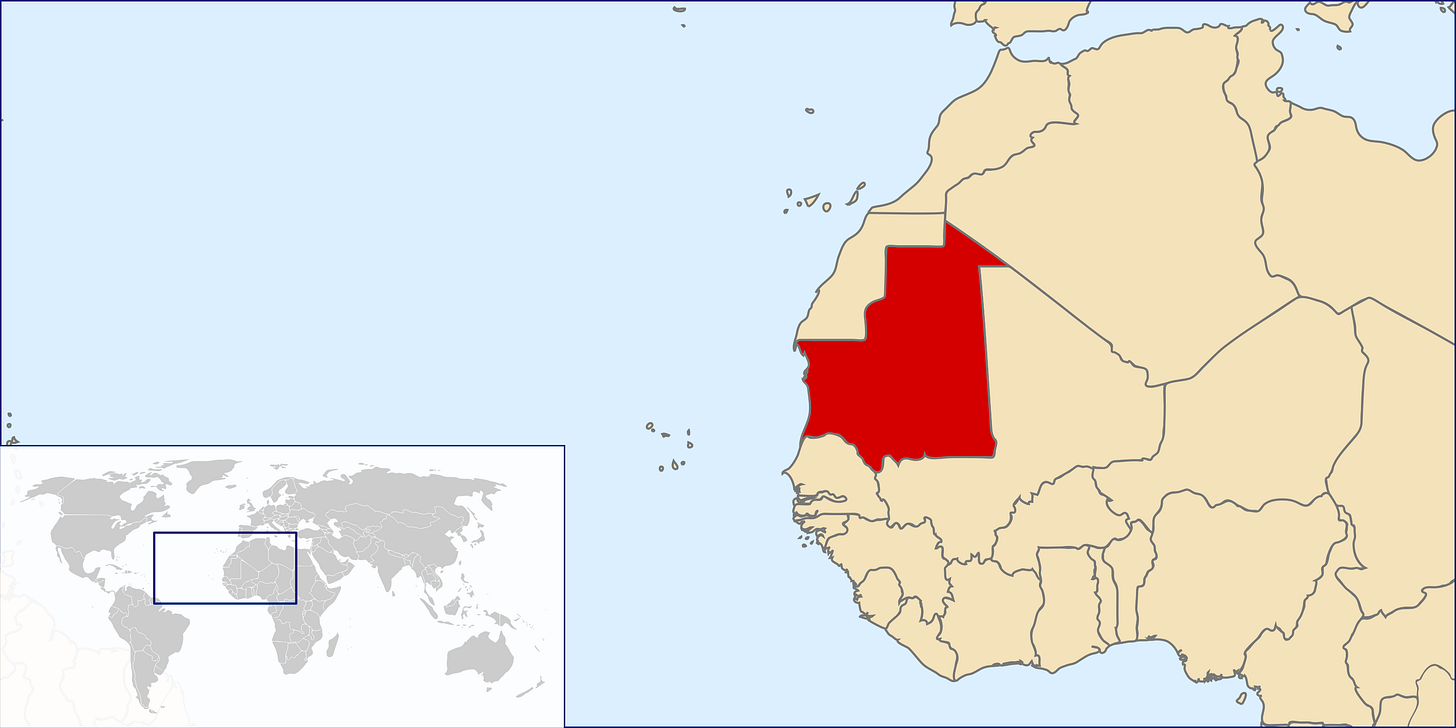🔅 BRICS Meet and Plan to Expand & TikTok Gets the Boot in Somalia
Plus, a New Migration Route to the US Emerges & Google to Help Nigerians Get Employed?
Photo of the day: Google Earth snap, Botswana

Markets:
🟢 Nigerian SE: 65,202.41 (+0.71%)
🟢 Johannesburg SE: 73,760.21 (+0.93%)
— Ghana SE: 3,061.68 (0.00%)
🔴 Nairobi SE: 100.86 (-0.48%)
🟢 US S&P 500: 4,388.61 (+0.43%)
🔴 Shanghai Composite: 3,092.98 (-1.23%)
China's Economy in a Funk: PBOC Cuts Rates | China’s central bank just made a second cut to one of its key interest rates in three months as the country’s economy continues to struggle. In contrast, other major economies are raising their rates to tackle inflation. China’s post-COVID recovery has been seriously hindered by a property crisis, falling exports, weak consumer spending, and a deflationary spiral. To make matters worse, two of the country’s biggest real estate companies, Evergrande and Country Garden, have both declared bankruptcy. Meanwhile, official figures show that imports and exports fell sharply in July, and China has stopped releasing youth unemployment figures—which were already sky-high.
*Data accurate as of the close of markets across the continent
Brief & Bright: Africa's Top Five Highlights
BRICS' Big Expansion: How the Bloc of Nations is Looking to Level the Playing Field

The BRICS nations (Brazil, Russia, India, China, and South Africa) are meeting in South Africa this week, and they have seen a massive surge of interest in joining their bloc—from countries like Iran, Argentina, and even Saudi Arabia. Why? Well, many of these countries feel like the global playing field is heavily tilted against them, and they’re hoping that BRICS can help them even the odds. After all, the BRICS nations are home to 40% of the world’s population and a quarter of the global GDP. But, the bloc’s ambitions of becoming a global political and economic player have been hampered by divisions within the bloc and a lack of a unified vision. So, while some countries are eager to join, others are a bit more cautious. After all, BRICS’s most tangible achievement—the New Development Bank—has been slowed down by sanctions against Russia. Also, South Africa’s experience joining BRICS has been less than impressive—the bloc accounts for only a fifth of its total two-way trade, and its trade deficit with BRICS has ballooned four-fold since 2010. Nevertheless, a bigger BRICS could lead to the group having more clout, and serve as a counterweight to the West's political and economic decision-making dominance on the world stage.
The Newest Migration Route: How Social Media is Helping Mauritanians Reach the US
Social media isn’t just for seeing what your high school friends are up to—it’s also a powerful tool for inspiring people to migrate. This is especially true in Mauritania, where a new migration route is being promoted by travel agencies and influencers on TikTok and WhatsApp. It goes something like this: fly from Mauritania to Turkey, Colombia, El Salvador, and then Nicaragua, where a low-cost visa can be purchased without proof of onward travel. Then hop on a bus and voila—you’re in the US. This surge in migration has surprised US officials—there was no particular triggering event, like a natural disaster or coup in Mauritania, just the power of social media. From March to June, 8,500 Mauritanians arrived in the US by crossing the border illegally from Mexico, up from just 1,000 in the four months prior.
Niger's Coup Leader's Plan: A Three Year Handover to Civilian Rule
Niger's coup leader, General Tchiani, has promised to give up the reigns to civilian rule within three years. But Ecowas, the West African regional bloc, isn’t so keen on the timeline. After a meeting between the two sides, Ecowas commissioner Abdel-Fatau Musah warned that the possibility of a military intervention was still on. Meanwhile, Gen Tchiani has made it clear that Niger won’t take kindly to any foreign intervention and it looks like the people of Niger are preparing for the worst—thousands of men showed up at a stadium in Niamey on Saturday to register for a volunteer force in case of invasion. All this, while Ecowas has been tightening the screws with sanctions that have led to blackouts in Niamey and other major cities, as well as blocking crucial imports.
TikTok Gets the Boot in Somalia

TikTok, Telegram, and 1XBet—three of the most popular apps in the world—have been given the boot in Somalia. The Communications Minister said the apps were banned to stop the spread of “indecent content and propaganda” and prevent al Shabaab, the al Qaeda-linked group, from using them to share “horrific images and misinformation.” The ban comes after the Somali President declared an offensive to wipe out al Shabaab within five months.
Google Gives Nigerian Women and Youth the Skills to Get the Job Done

Google has pledged to give Nigeria a helping hand to get one million of its citizens employed in the digital economy. The tech giant will train 20,000 Nigerian women and youth in digital skills, plus give the government a grant of $1.6 million to help them get started. Nigeria's Vice President Kashim Shettima said the Google initiative aligned with the government's commitment to get more young people involved in the digital economy. Google's Olumide Balogun said the company would also help startups grow, while Charles Murito said digital transformation could be a job enabler.
Food for Thought
“He who thinks he is leading and has no one following him is only taking a walk.”
— Malawi Proverb.
Are we hitting the mark?
Enjoying Baobab's updates? Spread the joy and share us with friends and colleagues — we'd be thrilled to have them join!
Feedback or thoughts? Just hit reply. We're all ears!




